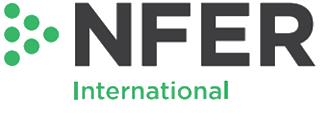Parents
What is the purpose of PIRLS?
The study aims to assess attainment in reading amongst pupils in countries world-wide. PIRLS provides the opportunity to compare attainment internationally and to learn from different countries’ experiences. PIRLS is not solely focused on reading attainment. It also collects information about characteristics of schools, teachers, pupils and their homes to examine the learning environment in which pupils learn and teachers teach. This information can be used to identify factors that influence academic attainment and pupils’ attitudes towards learning and to provide educational policymakers, school leaders, teachers and researchers with powerful insights in order to make recommendations aimed at improving teaching and learning reading literacy.
Who carried out the PIRLS 2021 study?
PIRLS was delivered in Northern Ireland by the National Foundation for Educational Research (NFER) on behalf of the Department of Education. NFER also delivered the 2011 and 2016 PIRLS cycles in Northern Ireland.
PIRLS is coordinated internationally by the International Association for the Evaluation of Educational Achievement (IEA).
Why was it important that the selected children took part in PIRLS 2021?
PIRLS provided children with the opportunity to tell us about their school and experiences and to represent Northern Ireland in an important global study that informs policy in their country and around the world.
What was involved for the children taking part in PIRLS 2021?
The study was administered during normal school hours. Pupils completed one paper-based booklet containing reading texts and questions. Following the assessment, pupils completed a questionnaire about their background, attitudes towards school and experiences. For example, pupils were, among other things, asked to state how much they liked reading and how much they felt they belonged to the school.
In majority of cases, a trained PIRLS study administrator visited the schools and conducted the study. In a small number of schools, a member of staff administered the study as the school had Covid-19 related restrictions on visitors at the time.
NFER asked parents to complete a questionnaire, either online or on paper, regarding the home learning environment. This was given to parents via the school. Any information parents provided can help schools to be a better place for everyone.
What has happened to the data?
NFER and the Department of Education take data protection very seriously and ensured the study complied with both the General Data Protection Regulation (2018) and the Data Protection Act (2018).
- As data controller, DE decided how and what data will be processed as part of the study. As data processor, NFER followed DE’s instructions on how personal data should be handled.
- Neither NFER nor the Department of Education have or will pass on the results of pupils’ performance to anyone.
- The responses to the study from pupils, parents and schools are treated in strict confidence and no school or individual have been or will be identified in any of the PIRLS reports.
NFER sent the data to the international PIRLS team for analysis. The final data is available on the IEA website, and all school and pupil data were anonymised.
Please view the Parent and Pupil privacy notices for further details about the information we collected and how we used it.
See FAQs for parents for more information.
